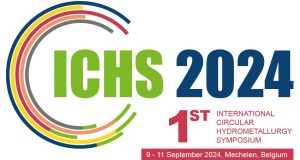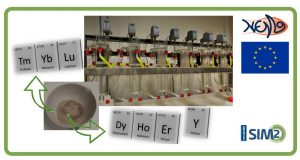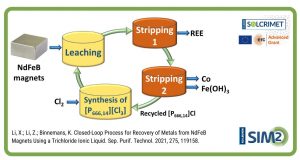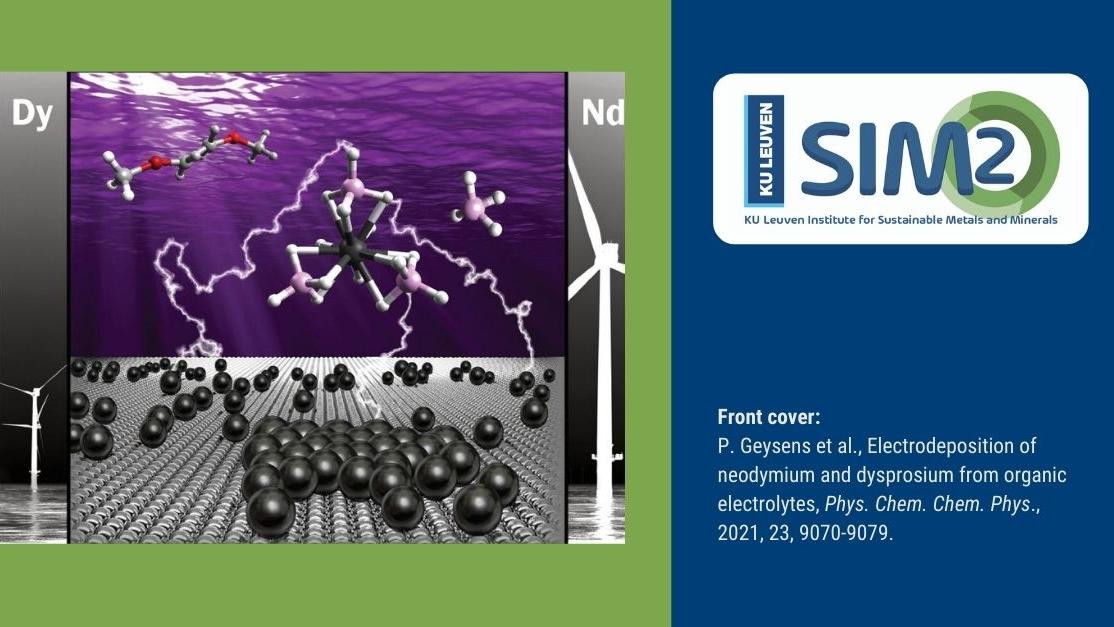Every Friday, the Marie Skłodowska-Curie Association (European Commission) shines the spotlight on one of its researchers, celebrating them as the “MSCA Fellow of the Week”. Last Friday, it was our very own Gwendo and her research in the DEMETER project who was nominated. The fellows of the week are selected based on how well they can summarise their research, their photos, and their outreach activities. Congrats Gwen! (PTJ, 27/11/2018)
 MSCA fellows are expected to engage in outreach activities as an integral part of their fellowship. Gwendolyn Bailey (KU Leuven) was recently given the “MSCA outreach award” for her role as presenter in the DEMETER video. Therefore, she was nominated to be featured on the social media accounts of the European Commission’s MSCActions Program. Gwen will also be an Invited Speaker in the February 2019 Concluding Symposium for DEMETER, where she will be on the panel debate “Are REEs still critical?”.
MSCA fellows are expected to engage in outreach activities as an integral part of their fellowship. Gwendolyn Bailey (KU Leuven) was recently given the “MSCA outreach award” for her role as presenter in the DEMETER video. Therefore, she was nominated to be featured on the social media accounts of the European Commission’s MSCActions Program. Gwen will also be an Invited Speaker in the February 2019 Concluding Symposium for DEMETER, where she will be on the panel debate “Are REEs still critical?”.
Gwendolyn Bailey biography
Gwendolyn Bailey is a PhD candidate at KU Leuven University studying Sustainable Materials Science with a concentration on Rare Earth Elements. Gwendolyn received her MSc degree in environmental management and sustainability from Universite Catholique de l’Ouest in Angers, France in 2015. Since then, she has been working in KU Leuven’s Department of Materials Engineering and Metallurgy as a Marie Skłodowska Curie Fellow focusing on life cycle assessment, life cycle costing and other sustainability assessments. She is involved in the project DEMETER which is a EU Horizon 2020 MSCA-ETN project on recycling of rare earth permanent magnet motors. Gwendolyn is also involved in the coordination and life cycle research management of a EIT Raw Materials funded project called GloREIA, or Towards a Global Rare Earth Industry Association. Gwendolyn co-authored the recent DEMETER Policy Brief “Why the EV industry must work together with REE producers”.
Gwendolyn Bailey at the EC’s Raw Materials Week
Gwendolyn Bailey (KU Leuven) represented DEMETER at the second annual Critical Raw Materials (CRMs) Event. This event offered an opportunity to a variety of stakeholders to get a fresh update about the latest EU activities in the field of Critical Raw Materials. In her lecture, Gwendolyn Bailey pointed out that in order to transition to a low carbon economy “We don’t just need technology… we need life cycle assessments.” The DEMETER project aims at a more sustainable electric vehicle and pleads for a design for reuse or recycling.
Concluding DEMETER Symposium
 The DEMETER Closing Symposium is organised in Leuven (Belgium) on February 5-7, 2019. Registration for this event, which is a co-organisation of DEMETER, SIM² KU Leuven and GloREIA, is now open. The DEMETER Symposium features a high-quality, “beyond-science-only” programme on rare-earth permanent-magnet motors and the e-mobility revolution. The three-day Symposium provides the floor to invited international experts from industry, academia and the European Commission, as well as the early-stage researchers from the DEMETER project who will present their final results. The Symposium includes two exciting panel discussions, which will stimulate a wider societal debate about the transition to a low-carbon mobility system, the requirement of critical metals (incl. rare earths), the Social License to Operate to mine and/or recycle critical metals, as well as the geopolitical aspects of rare earth sourcing. You can register here.
The DEMETER Closing Symposium is organised in Leuven (Belgium) on February 5-7, 2019. Registration for this event, which is a co-organisation of DEMETER, SIM² KU Leuven and GloREIA, is now open. The DEMETER Symposium features a high-quality, “beyond-science-only” programme on rare-earth permanent-magnet motors and the e-mobility revolution. The three-day Symposium provides the floor to invited international experts from industry, academia and the European Commission, as well as the early-stage researchers from the DEMETER project who will present their final results. The Symposium includes two exciting panel discussions, which will stimulate a wider societal debate about the transition to a low-carbon mobility system, the requirement of critical metals (incl. rare earths), the Social License to Operate to mine and/or recycle critical metals, as well as the geopolitical aspects of rare earth sourcing. You can register here.
Acknowledgements
The ETN DEMETER project has received funding from the European Union’s EU Framework Programme for Research and Innovation Horizon 2020 under Grant Agreement No 674973.

 European Training Network for the Design and Recycling of Rare-Earth Permanent Magnet Motors and Generators in Hybrid and Full Electric Vehicles (DEMETER)
European Training Network for the Design and Recycling of Rare-Earth Permanent Magnet Motors and Generators in Hybrid and Full Electric Vehicles (DEMETER)



